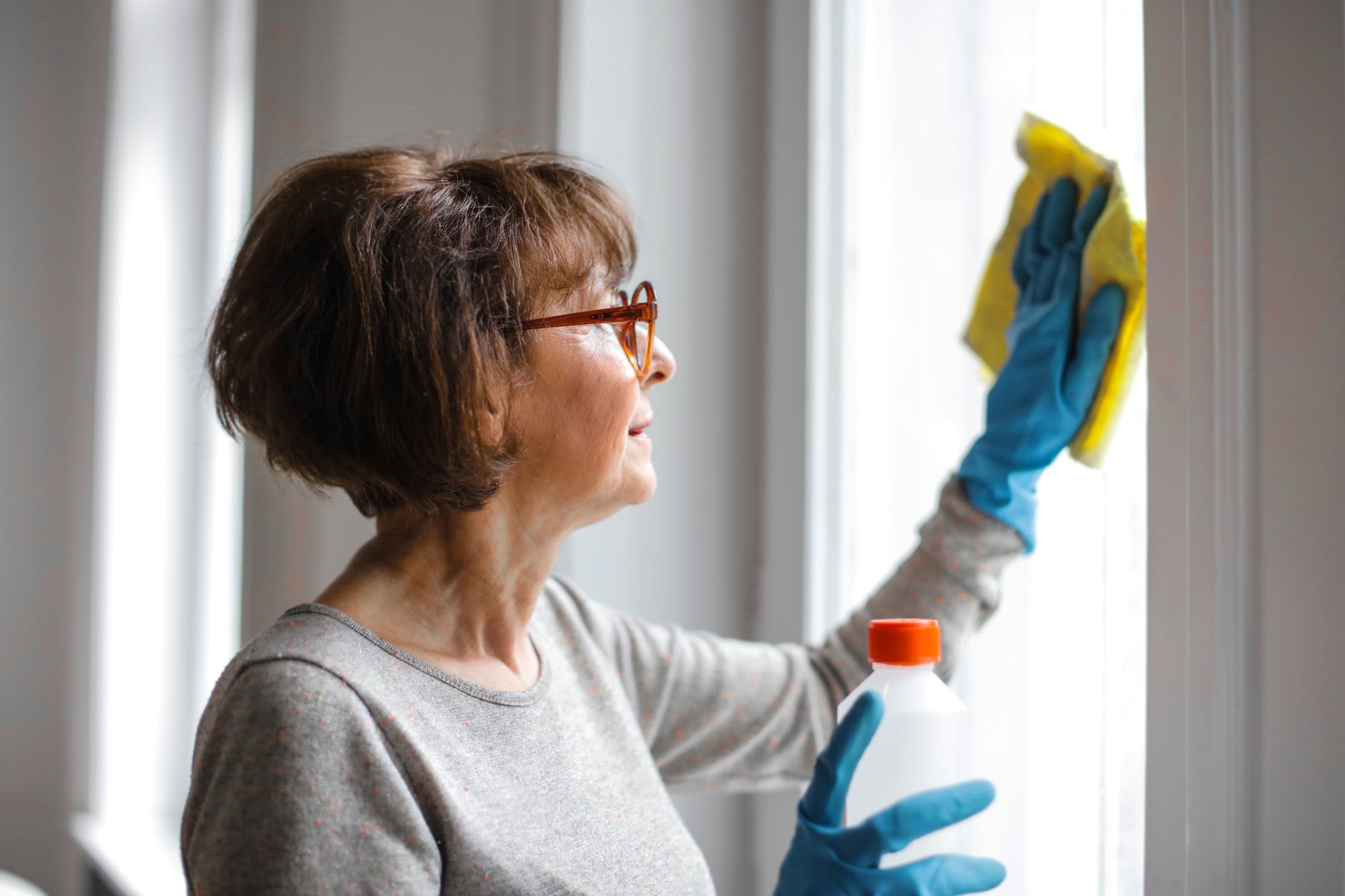How can you keep a loved one’s home cleaner and safer in the midst of COVID-19? Whether you’re diving in yourself, or guiding an elderly loved one remotely, keep these five cleaning best practices in mind:
- Know the difference between cleaning and disinfecting.
Make no mistake: cleaning and disinfecting are two very different pieces of the puzzle. Both matter in the battle against COVID-19.
Cleaning means removing germs, dirt and impurities from surfaces, which lowers their numbers and reduces the risk of spreading infection. Disinfecting uses chemicals to actually kill germs on a surface that you’ve just cleaned.
What does that mean in a household where you’re trying to prevent sickness? Do both. Clean dirty surfaces using soap or detergent and water first. Then, disinfect. Be sure to consult guidelines specifically for people who are already ill with COVID-19 if cleaning a home where someone already has it.
- Use the right products for the job.
Most of us now know the feeling of heading into the cleaning aisle, only to find familiar brands have disappeared from shelves. Still, don’t panic. While not all disinfectants are created equal, Health Canada has approved hundreds of different options to fight COVID-19. Many of them are made right here in Canada. Whatever you choose, follow the directions carefully. Taking a minute to actually read the label and understand exactly how to disinfect a given surface can help you deliver a better kind of clean.
- Don’t go off script unless it can be done safely.
From social media to neighbourhood Zoom meetings, we’ve all heard stories of friends and relatives mixing up their own cleaning potions. If you’re intent on making your own, stick closely to safety recommendations, and assess your situation before diving in. For example, talking a self-isolating senior through a higher-risk activity like mixing bleach or other chemicals can open up a world of new worries that no one wants. Focusing on doing what you can with whatever ready-to-use disinfectants you can source may be a safer bet.
- Don’t boil the ocean.
We know COVID-19 spreads mostly through respiratory droplets created by a cough or sneeze; close and prolonged physical contact (think shaking hands); or touching something with the virus on it, then touching your mouth, eyes or nose. We also know this germ can live on cardboard for up to 24 hours, and on other surfaces for up to three days. Those facts can cause real anxiety, and make it hard to know just where to start in terms of cleaning. Focusing your efforts on the highest-touch areas can help you stay calm, and ensure the riskiest areas of the home are cleaned on a regular basis.
Doorknobs, toilet flushers, sink handles, fridge doors, computer keyboards and smart phones are high on most lists. Ask yourself what the top five or 10 high-touch surfaces in a senior’s vicinity are, and make sure they’re getting regular attention.
- Add clothing to the list.
There’s a lot of discussion over whether clothing, and shoes in particular, can bring germs into a house. Anyone caring for someone who’s ill should pay extra attention to cleaning their clothes and know this: public health tells us it’s safe to wash clothing belonging to an ill person along with the regular laundry.
More broadly, keeping clothes – and the hampers or bags that house them – clean can’t hurt as we aim to curb the spread of COVID-19. Like everything, think about where people have been, wash what they’ve worn, and keep the laundry bubbles, hot water, and dryer cycle rolling.
Closing thoughts
Keeping seniors safe at home can certainly feel like a lot right now. Staying focused on cleanliness can be a real, tangible way of helping to keep COVID-19 at bay. Remember to keep your own safety in mind. Wear gloves while you clean, or wash your hands for at least 20 seconds once you’re done. Keeping yourself safe goes a long way for the very loved ones you’re trying to protect.

